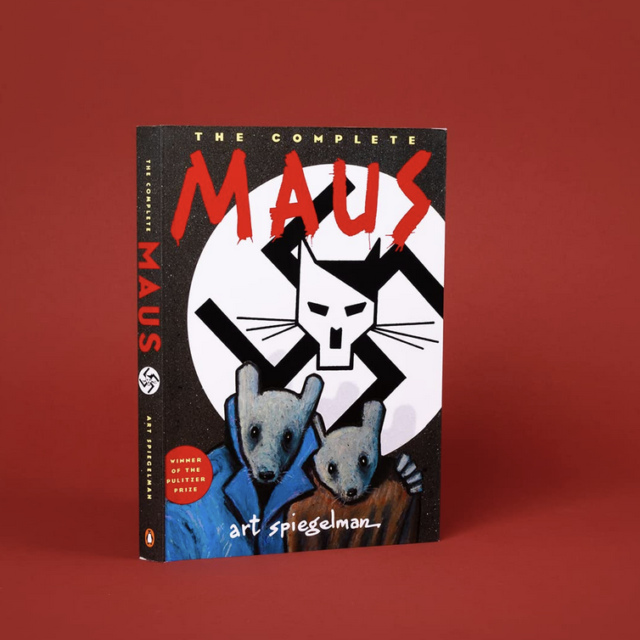This past week, Ms. Penniman was kind enough to lend me a copy of Maus by Art Spiegelman, a book that our library also has on its shelves. This book has one both the Pulitzer Prize Special Citations and Awards and the American Book Award both in 1992. Maus is a graphic novel that tells the story of one man’s family during the Holocaust, and in a way it becomes a story in a story. The way the novel is set up is very interesting to me. To some extent, it takes the form of an autobiography, as the author engages in these deep conversations with his father, which later become illustrated in the book Maus. We get both the actual first person perspective of the Holocaust, and also a glimpse into the life of a child born to a Jewish family shortly after the war was over. We get to see an author in the process of conducting interviews and asking the questions that need to be answered in his book. He chronologically follows his father, Valadek Spiegelman, a Jewish man born in the early 1900s in Poland, as he survives the Holocaust. In the book, Jewish people are represented as mice, German people as Cats, and Polish as pigs. There are other animal metaphors used as the book goes on as well. Maus is actually used by Penniman’s Holocaust and Genocide class, so if you’re taking this term-length class, you will get to read it anyway.
The graphic nature of the book adds to the story on multiple levels, one way it works is by emphasizing the dehumanization that occurred (on both sides) during the Holocaust. Using animals also enables the author to convey truths about power and powerlessness in different (hopefully more acute) ways. Think about the dynamic of cat vs. mouse, it’s in a cat’s nature to hunt the mice, even if not for food but for fun. When reviewed by Mr. Gentler says that “if anything it can also be said there is some sort of “meta” (or “self referential”) going on with the idea that telling one’s own horror stories can be really hard. Even impossible. The use of animals creates a little ‘space’ or distance that can make the telling of this kind of story lighter.” Overall, it is a very good, educational, and quick read, and really it never hurts to learn more about our world’s history, especially the tragedies of events like the Holocaust. After all, when we learn about history, we are less likely to repeat it.
